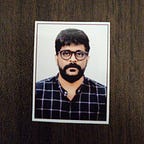Automotive Startups — Controlling gears of Mobility’s road ahead.
Tom Standage, British journalist, author and former deputy editor at The Economist, encapsulated the future of Automotive industry in his insightful new book called A Brief History of Motion.
According to Standage, the most relevant historical parallel is not with the car industry 100 years ago. Rather, it’s what took place during the advent of the smartphone. After the iPhone was announced, the market shifted away from companies with hardware expertise to firms that had compelling software.
That’s where we are now in the automotive industry, he said. The near future is going to be dominated by those that have the best tech, rather than those who can build the best car overall. Consequently, Standage says that the shift is already underway. The most influential carmakers of the future are the ones that are the best at software, he argued. The shrinking number of components needed for an electric car point to this.
“All of the complexity of an electric car goes into the software,” Standage said. “So suddenly, being good at software is the only thing that matters. And it’s obvious that the established carmakers are not good at software.”
Below listed are few of my personal pick promising startups & scaleups as well as the solutions they develop in the automotive industry.
Rivian: Whether you’re an industry watcher or a casual investor, it’s been hard to ignore the coverage of up-and-coming electric vehicle (EV) manufacturer Rivian Automotive (NASDAQ:RIVN). From shattering initial public offering (IPO) records to fetching an over-$150 billion valuation at its peak (which is more than General Motors, Ford, or even Starbucks), Rivian embodies a spirit of optimism and imagination.
Rivian is an automotive technology company that develops products and services to advance the shift to sustainable mobility. The company creates solutions that redefine traditional automotive economics and remove the pain points of conventional ownership. It also manufactures autonomous electric vehicles intended to offer a comfortable and eco-friendly drive experience.
On the surface, Tesla and Rivian are surprisingly similar. Rivian is closely following Tesla’s playbook, and laying the groundwork to build the same pillars of success that Tesla currently has.
If Rivian proves its production prowess and is able to meet customer demand in 2022, then it would reach a similar milestone that propelled its peer Lucid Group (NASDAQ:LCID) to new heights. In many ways, it is the ability to deliver on promises that will ultimately gain investor trust and bridge the gap between newcomers and a seasoned veteran like Tesla.
RIVIAN IS RACING TESLA, FORD, AND GM TO RELEASE THE FIRST LONG-RANGE ELECTRIC PICKUP
Lucid: If Tesla is a nice suit, and Rivian is a pricey Patagonia jacket, Lucid would be a clothing brand so posh most regular people have never heard of it.
Lucid Group, Inc. is an American electric vehicle manufacturer headquartered in Newark, California. Lucid’s other divisions include energy storage, and original equipment manufacturing. The company was founded in 2007. Deliveries of the Dream Edition launch versions were made available to the first group of 20 reservation holders on October 30, 2021.
It’s hard not to compare Lucid Motors to Tesla. There are plenty of similarities between the two companies — particularly when it comes to their exclusive focus on luxury electric vehicles — but it seems Lucid doesn’t actually see Tesla as a direct rival.
In a recent interview with Yahoo Finance, the CEO of Lucid Motors, Peter Rawlinson, explained that the company he runs is actually after traditional OEMs, such as Mercedes-Benz. He explained that,
“I would say our main competitor is a car company; I highlight Mercedes Benz in terms of the attributes of Lucid Air. We’re going after S-class Mercedes, but it’s a natural comparison, and I accept that comparison with Tesla. I think it’s really important that we start at a high-end position as a true luxury brand.”
The private investment and cash from Churchill will provide roughly $4.4 billion in total funding to Lucid. That capital will be put to work to speed up and expand Lucid’s plans. The company plans to begin production and deliveries of the Lucid Air in North America in the second half of this year — that’s a notable slip in the timeline; the company previously had aimed to begin deliveries this spring.
NIO: Moving out of North America, our next EV player is Chinese automaker NIO. Despite being founded only six years ago, NIO immediately put the pedal to the floor on EV development and has yet to slow down. In fact, on the day its brand was established, NIO debuted its first EV, the EP9 two-seat sports car.
Intvo: The US-based startup Intvo develops a pedestrian behavior prediction technology. Unlike two-dimensional (2D) and three-dimensional (3D) object detection technologies that consider limited parameters, their solution checks for head position, eye contact, and leg movements of the pedestrians, weather conditions, and assigns a risk level. This reduces false positives in pedestrian detection and enhances the safety of autonomous vehicles.
Udelv: The US-based startup Udelv provides autonomous vehicles for last-mile deliveries. It combines advanced AI algorithms and hyper-speed teleoperations for human-assisted guidance in unique situations. The startup’s vans have a payload capacity of approx. 360 kg (800+ lbs) and reach speeds up to approx 100 km/h (60 mi/h). The vans deliver groceries from nearby stores and send out a push notification when the order arrives.
References:
